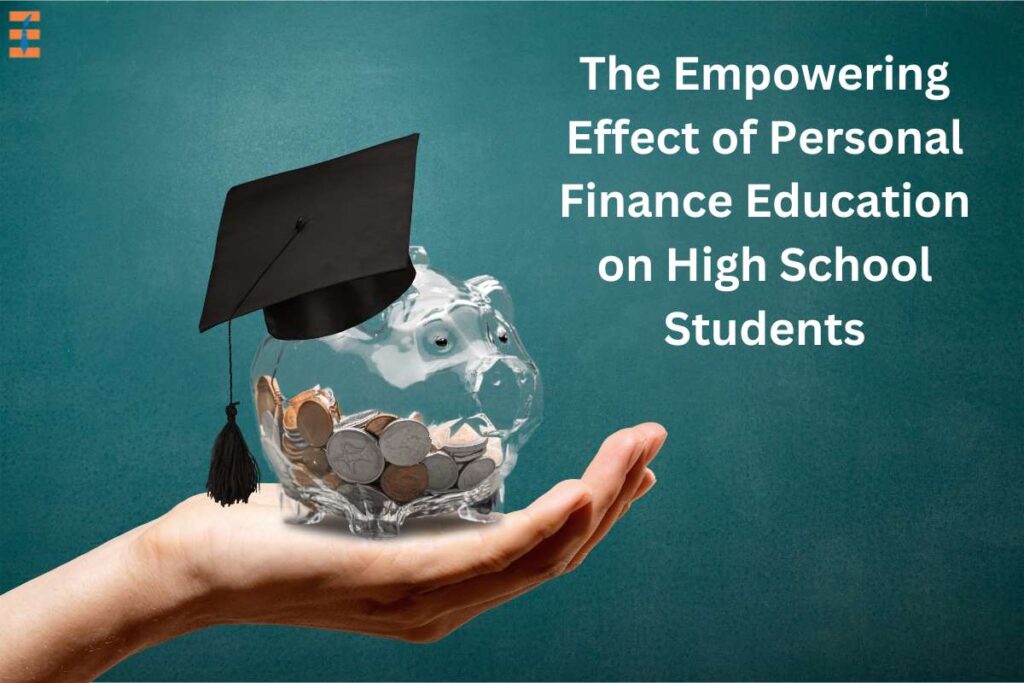Before earning money and being financially independent, you should get a proper personal finance education and how to manage it. Moreover, it should be included in the high school curricula. When students complete their graduation, they should possess a basic understanding of budgeting, investing, saving, or managing debt. They must be aware of the basic financial terms like inflation, credit, debit, etc. So that after gaining a degree education, they should be capable of empowering themselves and making financial decisions on their own.
It will make them truly financially independent and ready to face the challenges in their life and reshape their professional life. In this article, you will read about the importance of empowering the effect of personal finance education on high school students.
Here are 13 effects of personal finance education on high school students:
1. Financial Literacy is a Lifelong Skill

Financial literacy is not just about handling money; it’s about making informed choices that impact every aspect of life. High school students who receive a personal finance education are better prepared to navigate the complex financial landscape they’ll encounter as adults.
2. Budgeting and Money Management
Personal finance education teaches students how to create and stick to a budget. This skill is fundamental in preventing overspending, accumulating debt, and achieving financial goals. Students learn to differentiate between needs and wants, prioritize expenses, and allocate resources wisely.
3. Saving and Investing
High school is the perfect time to introduce students to the concept of saving and investing. Learning how to save money for short-term and long-term goals, as well as the basics of investing, can set them on a path toward financial security. Students can grasp the power of compounding and the benefits of starting to save early.
4. Debt Management
Understanding the implications of taking on debt is crucial. Personal finance education equips students with the knowledge to make informed decisions about student loans, credit cards, and other forms of debt. They learn how to manage debt responsibly and avoid falling into financial traps.
5. Financial Planning and Goal Setting
Personal finance education encourages students to set financial goals and develop plans to achieve them. Whether it’s saving for college, buying a car, or planning for retirement, students gain the tools to outline their financial aspirations and create a roadmap to reach them.
6. Critical Thinking and Decision-Making Skills

Learning about personal finance involves critical thinking and decision-making. Students analyze financial scenarios, evaluate options, and make choices based on their understanding of financial principles. These skills are transferable to various aspects of life and can help students become more responsible and independent.
7. Economic Empowerment
Financial education can empower students economically, reducing the risk of financial instability and dependency on others. It provides a sense of confidence and self-reliance, enabling them to navigate life’s financial challenges more effectively.
8. Reducing Financial Stress
Financial stress is a common issue among adults, but with the right knowledge and skills, high school students can learn how to manage their finances effectively, reducing stress and anxiety about money matters.
9. Risk Management
Personal finance education also introduces students to the concept of risk management. They learn about various financial products such as insurance and how these tools can protect them from unexpected financial setbacks. Understanding insurance options can be invaluable in safeguarding their financial well-being.
10. Ethical and Responsible Financial Behavior

Alongside practical financial skills, personal finance education emphasizes ethical and responsible financial behavior. Students learn about the importance of honesty, integrity, and accountability in financial transactions. This knowledge not only benefits their finances but also contributes to a more ethical and transparent financial system.
11. Adapting to a Changing Financial Landscape
The financial world is constantly evolving with new technologies, investment opportunities, and economic trends. Personal finance education equips students with the ability to adapt to these changes. They become more agile in making financial decisions, staying updated with the latest financial tools, and adjusting their strategies as needed.
12. Bridging Socioeconomic Gaps
Personal finance education can help bridge socioeconomic gaps by providing all students, regardless of their background, with equal access to financial knowledge. This empowers individuals to break the cycle of financial hardship and build a better future for themselves and their families.
13. Real-World Application
Perhaps one of the most significant advantages of personal finance education is its real-world application. Students can immediately apply what they learn in the classroom to their own lives, from creating a budget for personal expenses to making informed decisions about part-time jobs and college financing.
Personal finance education in high schools is a vital investment in the financial well-being and future success of students. It equips them with the knowledge, skills, and confidence needed to navigate the complexities of the modern financial world. By empowering young individuals with a solid foundation in personal finance, we not only prepare them for adulthood but also contribute to a financially savvy and responsible society.
It’s time to recognize that teaching personal finance is not just a choice; it’s a necessity for preparing our youth to thrive in an increasingly complex financial landscape. High school students who receive personal finance education are not just better prepared for the future; they are also poised to make wiser financial decisions that can positively impact their lives and those of future generations.
Conclusion
If your high school syllabus comprises finance education, you are about to make informed decisions in the future. You will be equipped with essential skills to serve you throughout your whole life and enable you to secure your financial future along with your family. By providing financial education to students, they are capable of navigating the various tools and knowledge to share financial responsibility in their lives. High school time is more than just academic learning, you can also prepare yourself to lead real-life challenges by acquiring proper education about finance. We hope you enjoyed reading our article, and found it important.
Also Read: How Personal Finance Education can aid High School Students?










